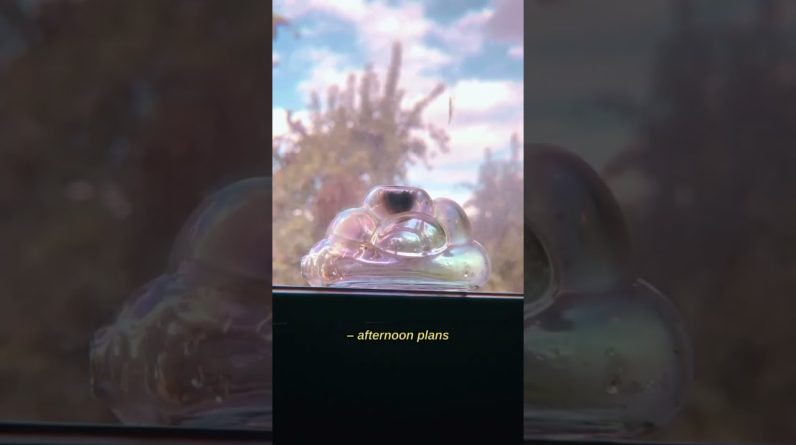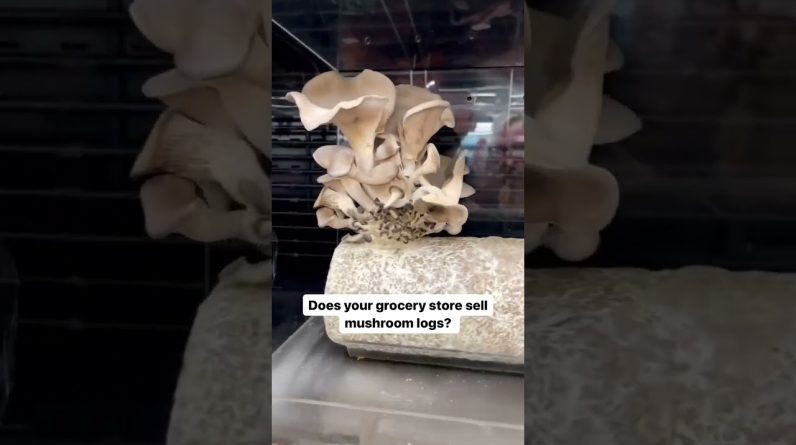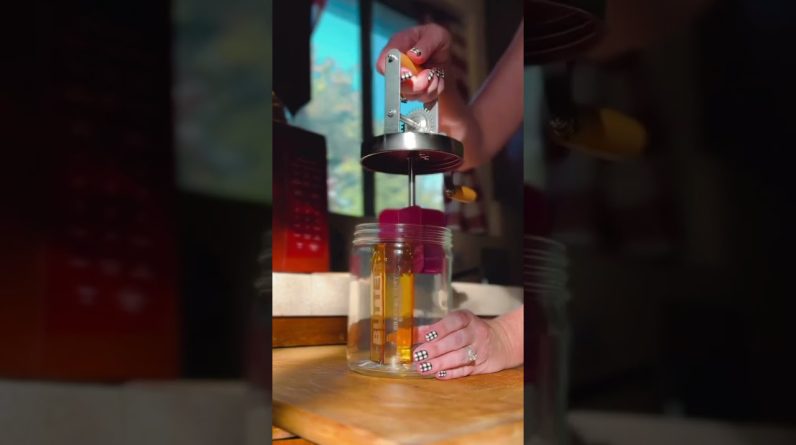Marijuana plants have several features and structures. Many of these can be found on a variety of flowering plants across the world. Marijuana plants grow on long, skinny stems with easily recognizable fan-shaped leaves. These leaves grow out of the plant from areas called Nodes.
The buds of the plant can be varied in the colors of hairs on the bud, the sticky crystals which form, and the tiny leaves which grow interspersed within the structure of the bud. When you study the plant, you realize that the Cannabis plant is truly complex and unique.
Structural Parts of a Marijuana Plant
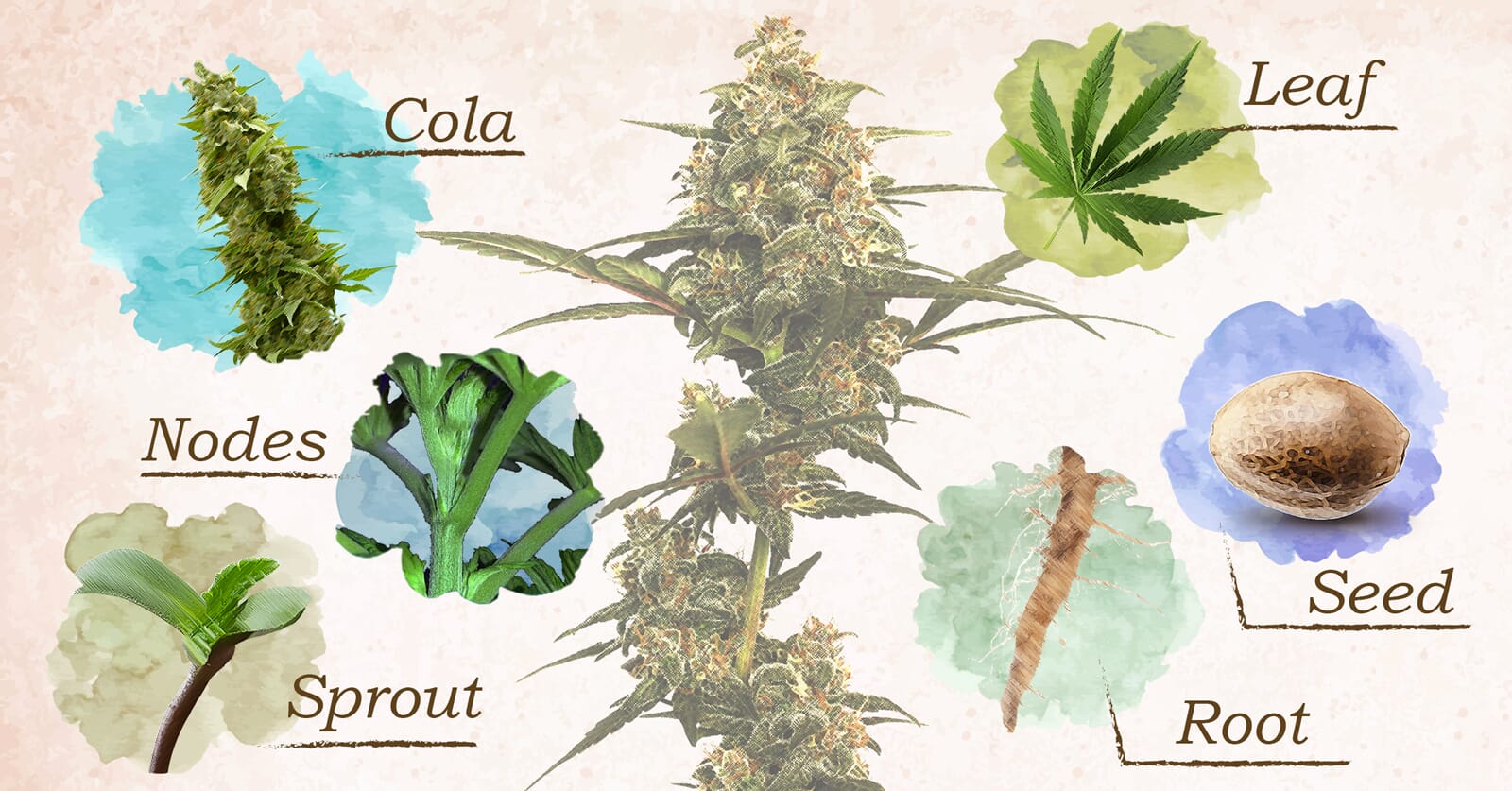
Seeds
When a female Marijuana plant (or any seed-producing plant) is pollinated, it produces seeds. These seeds carry the passed down genes of both the male & female plants. Once the seed germinates, it will sprout and grow roots.
Roots
The first root to grow out of the germinated seed is the Taproot. The taproot will eventually grow larger and become the main root of the plant. It will anchor the plant in the soil or another growing medium. Other roots will grow off the taproot. Roots are vital for the survival of the plant. They pull water and nutrients from the soil. They also pull in oxygen and other gases that may be present in the soil, that the plant needs to survive.
Stem
Sprout
While the roots grow down into the growing medium, the sprout grows up. The sprout will eventually become the main stem of your plant. All of the branches and buds will eventually grow off the main stem.
Stems
The sprout, which grows out of the seed and connects to the root system, will eventually grow into the main stem. Another name for the main stem is the stalk of the plant. This stem supports all of the branches that will become the mature plant. It determines the structure, shape, and stability of the plant.
You can adjust the shape and height of the plant by topping the plant. This involves cutting the stem off after a certain amount of branches. This can force the plant to be shorter and wider. This is desirable because it can produce more sites for buds to form and develop.
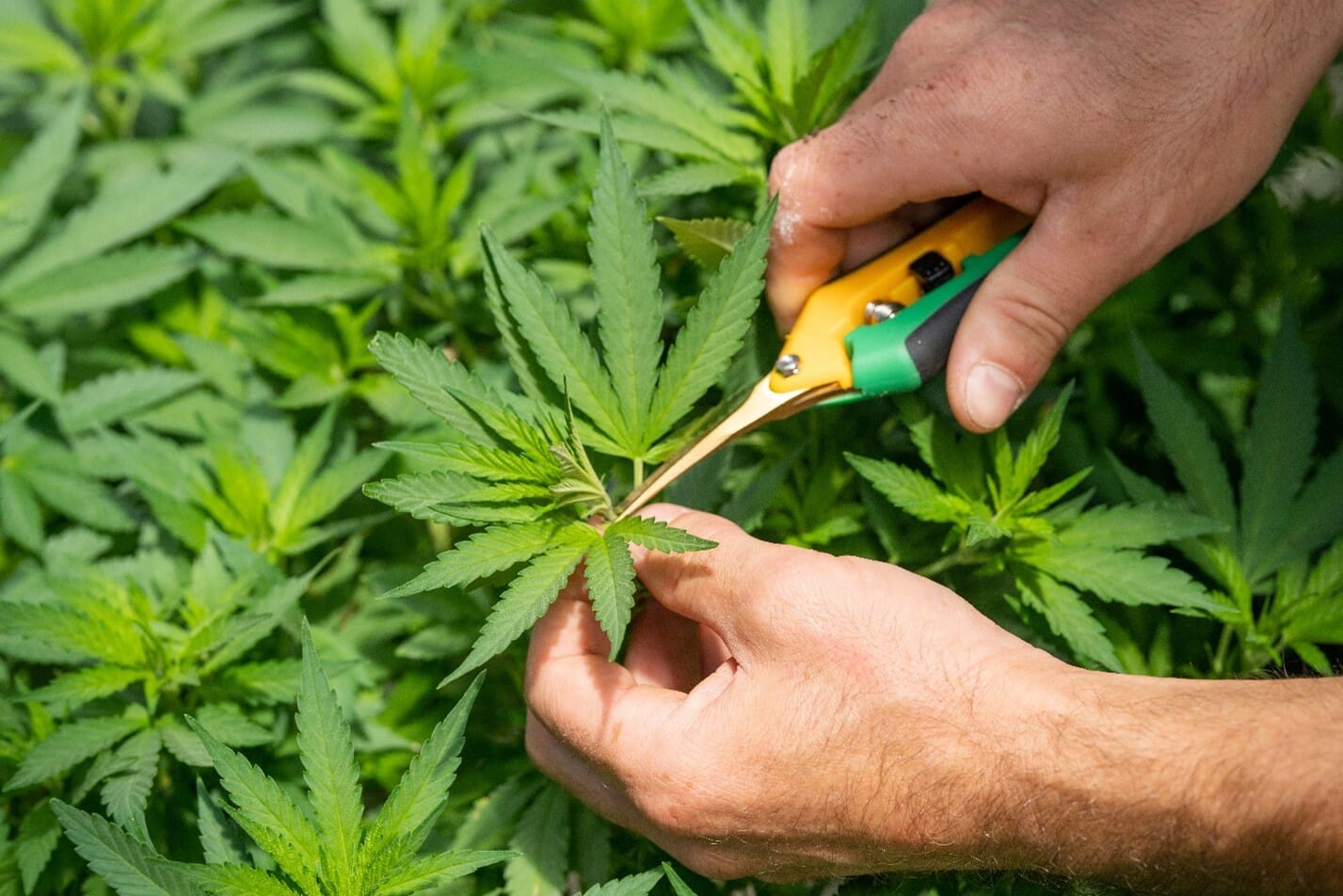
Cotyledon Leaves
Cotyledon leaves are the first leaves to grow on the sprout after the seed germinates. They are important because they let you know that the seed has been germinated. This is usually a sign that your plant is on its way to becoming the plant you want it to be.
Branches
Branches are the lateral stems that grow out of the main stem. They support buds and fan leaves. In certain cases, depending on how the plant grows, a branch can support other, smaller branches. You can trim the branches like the main stem. Growers will do this to support more bud sites.
Node
A node is a spot on a stem where a branch grows from. It can also be the spot on a branch where another branch forms.
The space between nodes on the stem is referred to as “Internodal Spacing”. Internodal Spacing can give you an idea as to whether your plant will grow tall or not. Just examine the space between nodes and that should give you some indication.
Where the nodes are located will be the sex organs of the plant. We will touch base on this later.
Leaves
Fan leaves
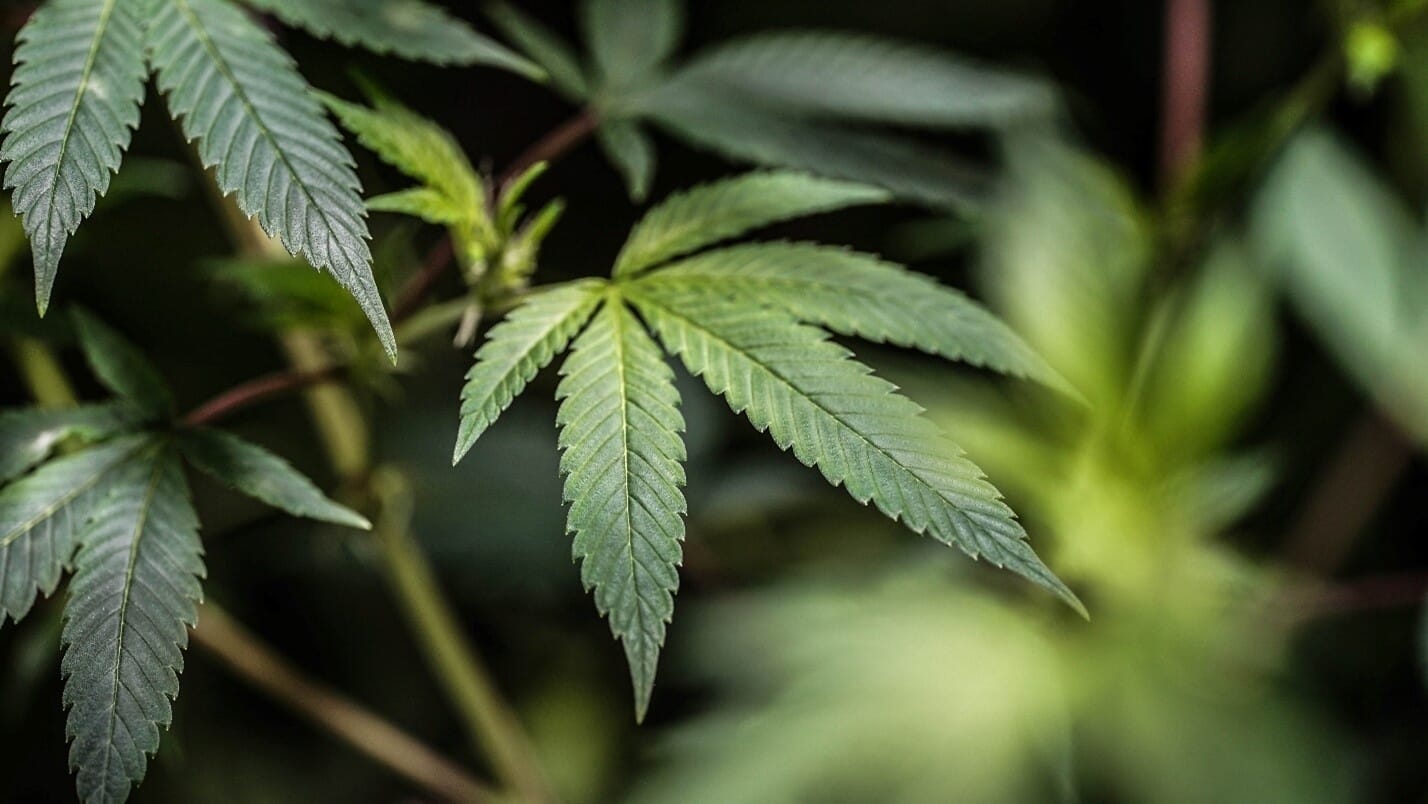
Fan leaves are the large leaves of the marijuana plant. You can recognize these iconic leaves by their spread-out shape and their seven leaves. They are the parts of the plants responsible for gathering light for the plant to grow and initiate photosynthesis. They are usually thrown away when trimming. However, some people keep them to roll blunts.
Sugar leaves
Sugar leaves are the small leaves that are interspersed among the buds. Technically the buds grow around the sugar leaves. But when you see the result, it looks like the leaves are growing out of the buds. They are usually coated in resin and may also contain trichomes. They are usually trimmed during harvest time. Sugar leaves are great for making oils, butter, and other weed products.
Buds
Cola
The cola is a densely packed group of buds. They usually grow together into a tight mass. The main cola of the plant forms at the top of the plant. There can be smaller, secondary colas that form at the budding sites of the lower branches of the plant.
Flowers

The buds of the female plant. Buds are the area that contains the terpenes, trichomes, THC, and other cannabinoids of the plant. The buds must be dried properly before consumption.
Cannabis Plant Sex Organs
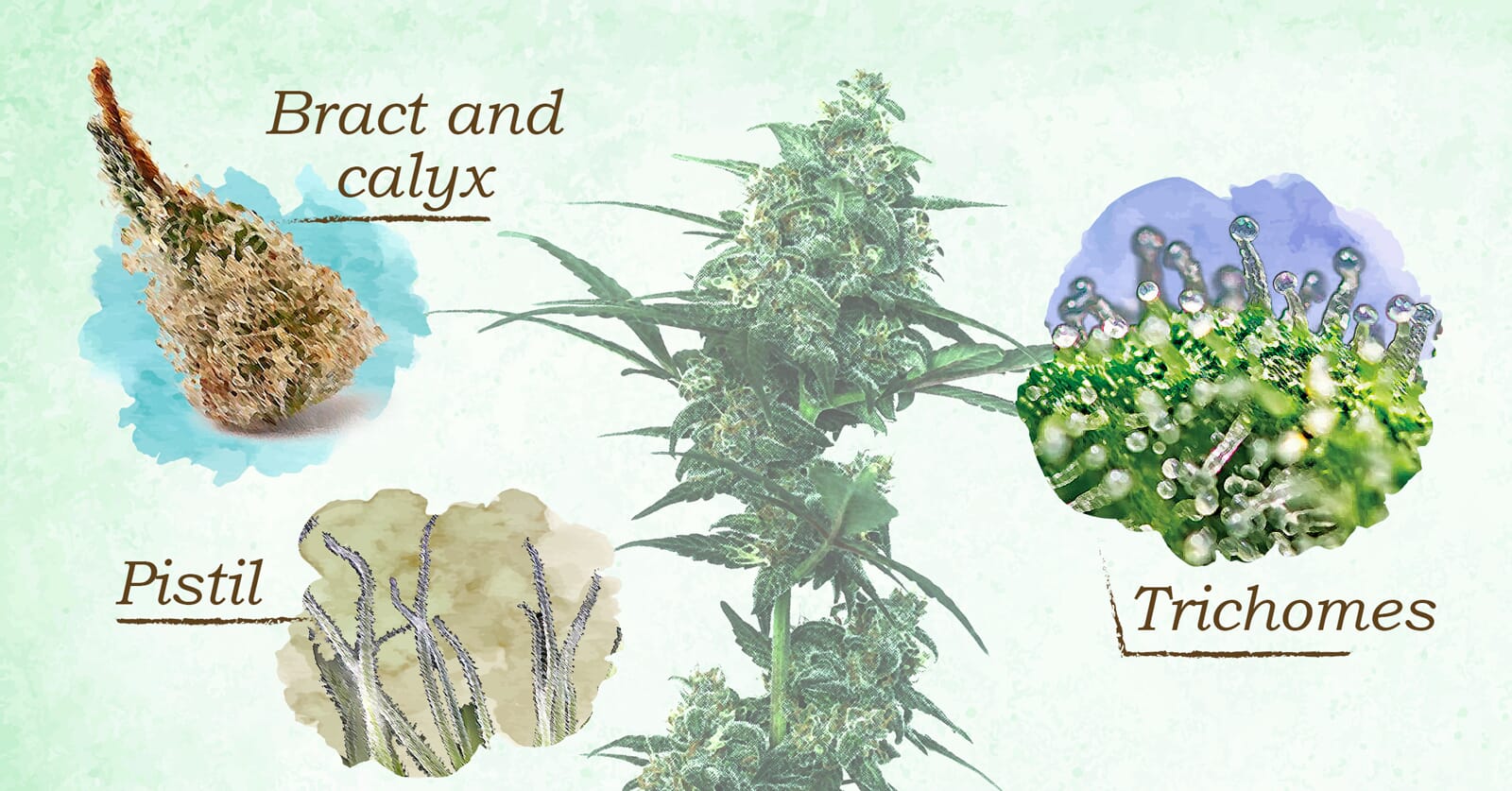
Bract and calyx
A bract is a part of the plant which surrounds the female sex organs of the plant. They look like small green leaves.
The calyx is a translucent layer over the part of the ovary of the plans that contain the female germ cell. After fertilization, this part of the plant will become the seed.
Stigma and pistil
The pistil houses the reproductive organs of a flowering plant. Stigmas are the hair-like structures in the pistil which collect pollen from male plants. Stigmas do not lend much to the number of trichomes, terpenes, cannabinoids, and THC in the plant.
Trichomes
Trichomes are one of the structures responsible for creating the “highs” that we all seek as marijuana users. They are the tiny hairs that create most of the flavors, terpenes, and cannabinoids that make a marijuana plant effective. They add to the unique flavors and potency of the plant.

Male vs Female Plants
When we are thinking of marijuana plants, buds, and getting high; we are thinking about the female cannabis plants. Male plants do not produce the compounds and chemicals to a large enough degree to cause a psychoactive reaction. That is not to say that male plants do not have them, it’s just that the work necessary to get high isn’t worth what you would get.
The male plant is good for making hemp and perhaps making some extracts. Mostly though the female plant is responsible for the larger production of the chemicals which have a positive effect.
Wrap up
As we said earlier, the cannabis plant is very complex. Its parts all work harmoniously to give you the high that you desire. I hope this guide to the anatomy of a marijuana plant has been informative. I will finish this off with a chart summarizing the parts mentioned above. Be safe and happy smoking!
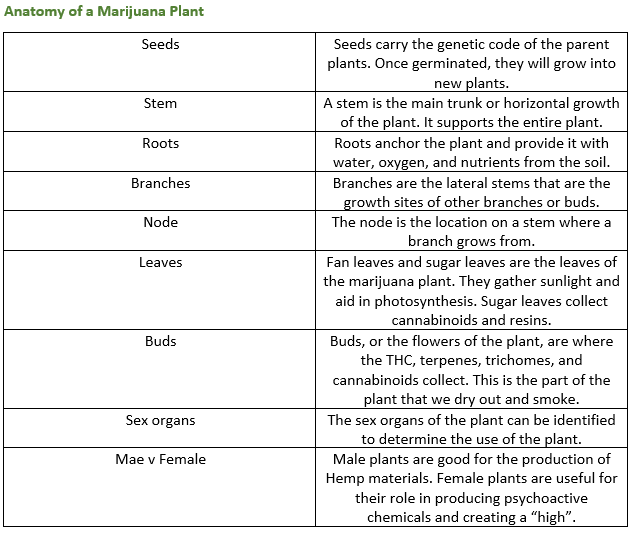
Source: https://amsterdammarijuanaseeds.com/blog/marijuana-plant-anatomy/


